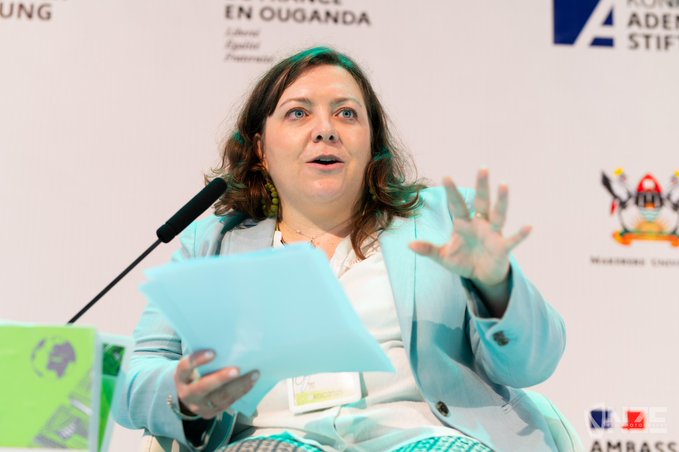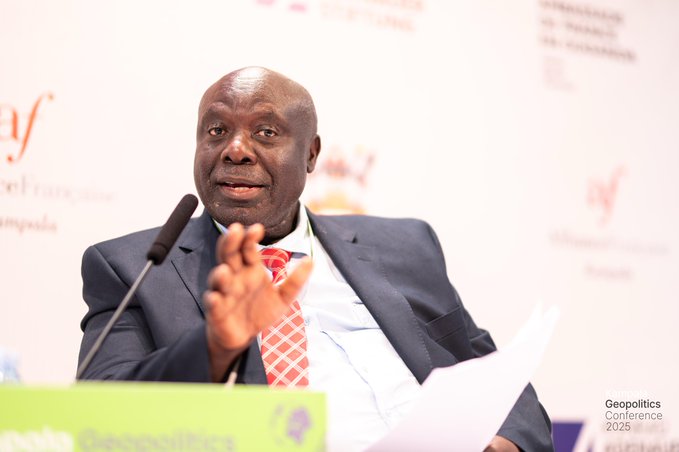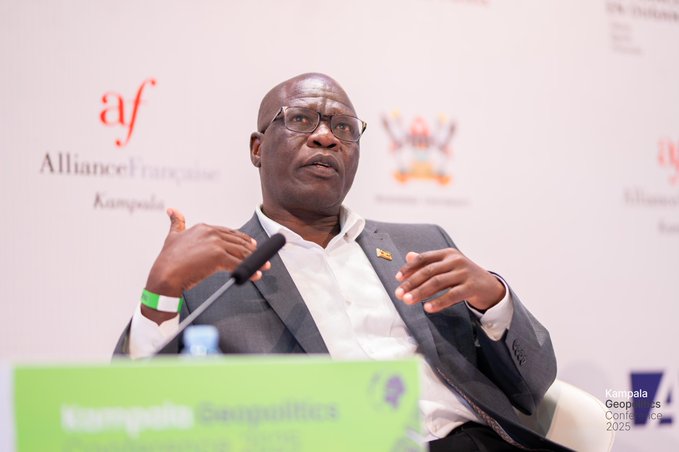Uganda’s growing interest and indirect vulnerabilities tied to maritime security, climate change, trade, and global diplomacy, despite being a landlocked country, were highlighted on Thursday during the Kampala Geopolitics Conference 2025 held at Makerere University.
Panel 4 of the Kampala Geopolitics Conference 2025 took a deep dive into the theme: “Protecting the High Seas and Guaranteeing their Safety and Security: What are the Strategic Stakes for Uganda?”
Moses Egaru, Uganda’s Country Representative of the International Union for Conservation of Nature (IUCN), moderated the engaging panel, which featured a mix of international legal experts, environmental scholars, and maritime officials.
Geopolitics of the High Seas: Shared Interests, Global Rivalries
Dr. Sonia Le Gouriellec, Associate Professor at the Catholic University of Lille, framed the discussion within a larger geopolitical context.

“There has always been a question whether the Red Sea is an Arabic sea—but today, we ask if it is becoming a BRICS lake,” she said, noting the recent alignment of several Arab countries with the BRICS bloc.
Despite global rivalries, Dr. Le Gouriellec emphasized the rare instances of unity among world powers: “Africans, Chinese, Americans, Indians—despite their differences—have all worked together to fight piracy on the high seas.”
However, she pointed to a persistent weakness in Africa’s own regional coordination. “It has proven quite difficult for African nations to come together and create a functional institution to govern maritime security.”

She also drew attention to France’s influence post-Brexit: “Since Brexit, 95% of the EU’s overseas territories are now French, making France the leading maritime power in the EU.”
Uganda’s Stakes in High Seas Security
Prof. Emmanuel Kasimbazi, Professor of Law at Makerere University, laid out the tangible reasons why Uganda, though inland, should care about the high seas.
“Access to seafood, tourism, and environmental protection are all part of our national interests,” he said.

Prof. Kasimbazi warned that instability in the oceans has ripple effects on landlocked countries: “Insecurity on the high seas affects the smooth running of trade. Piracy, cargo theft, rising sea levels, and high sea freight costs all hurt Uganda’s economy.”
He identified several opportunities Uganda can seize: participation in global climate change efforts, diversification of trade and eco-tourism, legal frameworks to enable high seas cooperation and boosting international diplomacy.
Labour and Regulation: Uganda’s Hidden Maritime Potential
James Watson Mawa, Principal Maritime Training Officer at Uganda’s Ministry of Works and Transport, emphasized the growing global demand for seafarers as a major opportunity.

“It is estimated that demand for labourers on the high seas will rise to 1.2 million in the next two years. Uganda can tap into this opportunity. For example, the Philippines earns $6 billion annually from maritime labour remittances.”
Mawa also highlighted Uganda’s efforts in regulating inland water transport through legal frameworks such as the Inland Water Transport Act 2021. “We may be landlocked, but the effects of piracy, terrorism, and drug trafficking on the seas concern us directly. These are global issues with no borders.”
The session concluded with a consensus that Uganda must not be passive about issues beyond its borders. From economic opportunities in maritime labour to the environmental and security risks that can disrupt its trade and diplomacy, the high seas are very much a Ugandan concern.












